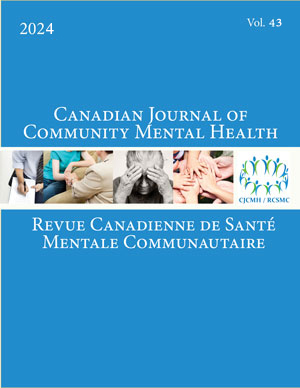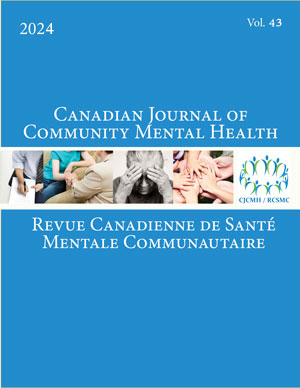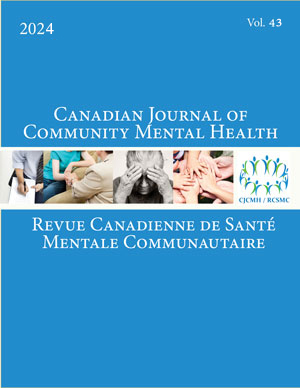Volume 33 • Number 3 • December 2014
Articles
OPEN ACCESS
This research uses a longitudinal design to examine aggression and prosocial behaviour as early predictors of substance use behaviours in emerging adulthood. Using data from the National Longitudinal Survey of Children and Youth (NLSCY), self- and maternal reports of early engagement in relationally and physically aggressive behaviours and prosocial behaviours are examined as predictors of cigarette smoking, marijuana use, and alcohol use in emerging adulthood. Using multinomial regression analyses we found that maternal reports of relational aggression significantly predicted daily smoking whereas self-reports did not. Maternal reports of relational and physical aggression did not predict alcohol use and marijuana use; however, self-reports of relational aggression and prosocial behaviour predicted weekly marijuana use in this representative Canadian sample.
OPEN ACCESS
This study describes an assertive community treatment (ACT) model in a rural Canadian location and examines characteristics of ACT service users, their degree of satisfaction with ACT, and whether their engagement with ACT resulted in reduced reliance on acute psychiatric services and hospital emergency room use. Chart audits were used to collect demographic and clinical participant data, including days of psychiatric admission and emergency room (ER) visits. Twenty-nine ACT clients agreed to participate. The majority of participants (82.8%) were male and had been diagnosed with schizophrenia or a schizoaffective disorder (65.5%). There was a high rate of concurrent substance abuse (75.9%). The average number of readmission days was reduced from 14 to 0 (p < 0.05) following engagement with ACT, and the average number of visits to ER s was reduced from 3 to 1 (p < 0.05). Participants reported overall high satisfaction with ACT services. Study implications for policy and practice are discussed along with future research recommendations.
OPEN ACCESS
Continuity of care is critical for people with mental health problems following a period of incarceration or forensic hospitalization––for both mental health recovery and preventing criminal recidivism. Little is known, however, about existing supports and services for the unique needs of this group of people. This case study engaged 20 community stakeholders in Halifax, Nova Scotia, in a capacity-mapping forum. In small focus groups, participants worked through a series of guided capacity-mapping activities. The findings map existing assets according to their policy mandate for providing mental health and/or criminal justice services. Critical challenges to ensuring continuity of care were described.
OPEN ACCESS
The purpose of this qualitative study was to understand the attitudes and opinions of varsity football players toward mental health and help-seeking. The insights gained from this study may contribute to a greater understanding of how stigma functions in a competitive, elite-level football team. The authors concluded that the competitive edge required for success in elite athletics conflicts with mental health issues and illnesses. Components of the stigma process (labelling, stereotyping, separation, status loss, and discrimination), along with the impact of gender on stigma toward mental illness and help-seeking behaviours, are explored. Recommendations are made to broaden the scope of mental health initiatives for student athletes.
OPEN ACCESS
We explore the effects of supported housing on the quality of life and recovery of consumers in a rural community, and also explore how this housing approach could be improved. Data were collected from 16 tenants involved in Supported Housing for Individuals with Mental Illness (SHIMI), located in Nova Scotia. The following themes were identified in the analysis: support, security, normalcy and integration, stability and control, and recovery. Suggestions for improvement include fostering a stronger system of supports, coordinating initiatives to reduce the living costs and build the assets of tenants, and having greater consumer involvement in the initiative.
OPEN ACCESS
An interpretative phenomenological approach with a purposive sample of 3 men and 3 women was employed to explore the meaning of health and help-seeking behaviours of refugees living in Canada who have experienced collective violence in their countries of origin. Prior to migration, the participants’ meaning of health and help-seeking behaviours were fashioned by their embodied experience of life as nonexistent and meaningless. Post migration, their past lived experience of collective violence continued to shape their perceptions of their health and help-seeking behaviours. Participants call for a restructured system offering specialized mental health services for this population.










